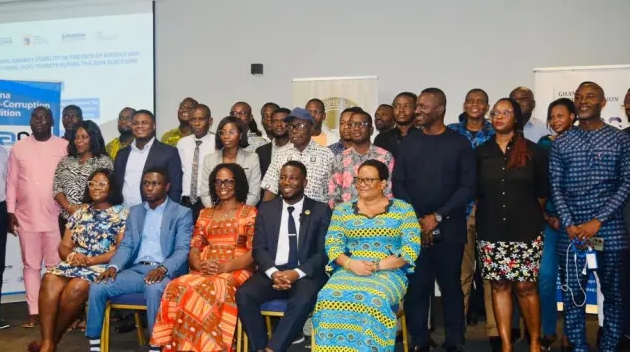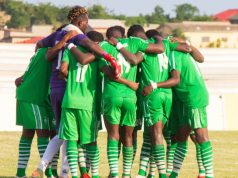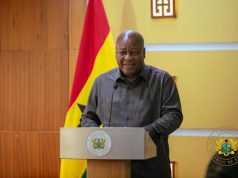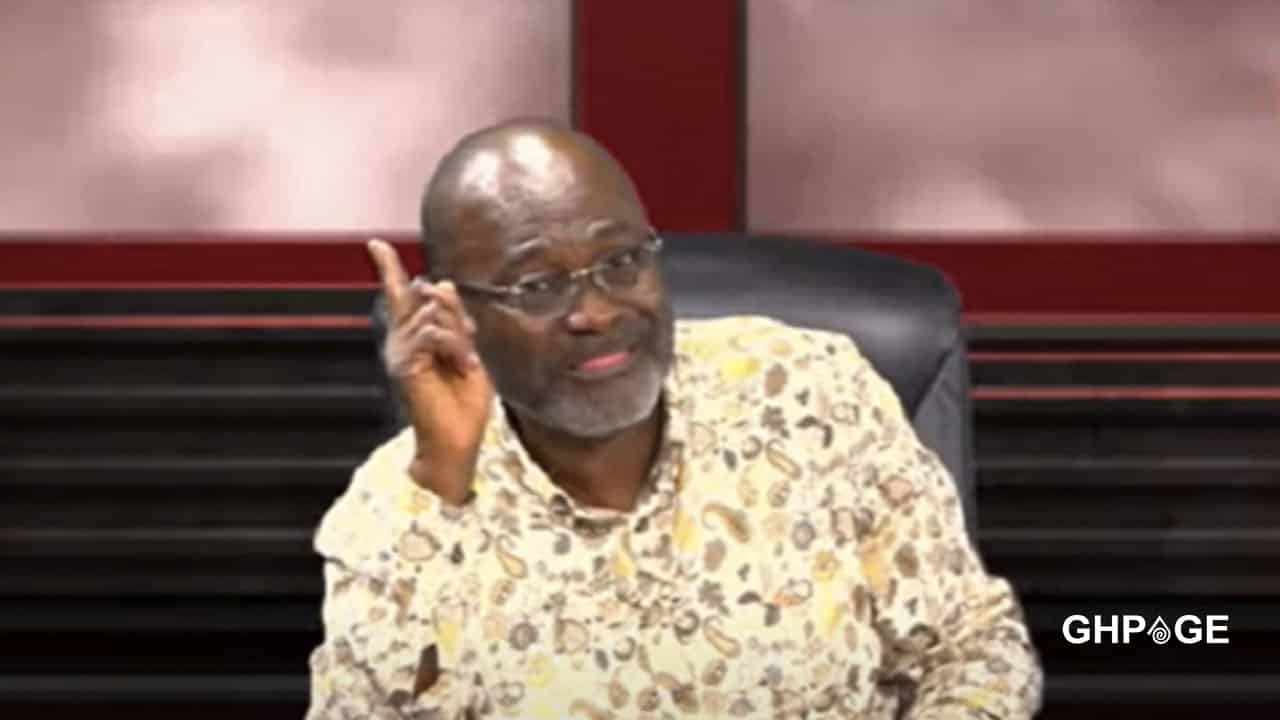Under the auspices of the Foreign, Commonwealth and Development Office of the United Kingdom (UK) government, the Ghana Anti-Corruption Coalition (GACC), in collaboration with the Ghana Integrity Initiative (GII) and the Africa Centre for Energy Policy (ACEP), organized an intensive training workshop for journalists on Serious Organized Crime and Political Party Financing in Accra.
The one-day training workshop which took place on Wednesday, 7th February 2024, at the Fiesta Royale Hotel in Accra, aimed to enhance the media’s capacity to contribute to the fight against Serious and Organised Crime (SOC) threats in the lead-up to the 2024 elections.

In her opening remarks, Beauty Emefa Narteh, Executive Secretary of the Ghana Anti-Corruption Coalition, bemoan that, the exorbitant cost of elections in Ghana raises eyebrows and questions about the sources of such funds, pointing to a possible reliance on external, often illicit, support.
She disclosed a research by the Center for Democratic Development (CDD), that indicates a troubling overlap between the financing of political activities and serious organized crime in the country.
Madam Emefa Narteh emphasized, “It is imperative to bring these culprits to light. Ghana’s future is at stake, and we have to name, shame, and, if warranted, prosecute those who use illicit gains to fund political ambitions.”
Leo Anthony Assiamah from the Economic and Organized Crime Office (EOCO), in his presentation revealed how electoral abuse, including voter intimidation and vote buying undermines democracy.
He underpinned the lack of focus on criminal interference in elections, as well as a 59% increase in the cost of running for office as a Member of Parliament (MP) between 2012 and 2016.
Revealing that, the average cost to secure a party nomination in 2016 was GH¢ 389,803 ($85,000). Thus, he stressed the need for a collective effort to combat the threats posed by Serious and Organized Crimes (SOCs) to Ghana’s democracy.
On the backdrop of accurate reportage on corruption malfeasance in the country, Samuel Appiah Darko, Director of the Strategy, Research & Communication Division, of the Office of the Special Prosecutor-Ghana (OSP), also indicated the OSP’s focus on investigating acts of corruption as defined by Ghanaian law, stressing the need for thorough investigations before public disclosures.
Whereas Kwaku Krobea Asante, Programme Officer at the Media Foundation for West Africa (MFWA), closed the training by encouraging journalists to leverage on the RTI law to uncover serious organized crime and political financing in Ghana.
Emphasizing that, “The RTI Law is a potent tool for journalists, enabling them to access vital information and significantly enhance the quality and depth of their reporting.”
Find below a communique by GACC issued at the end of the training:Communique on Media Capacity Building Workshop on SOC Threats During Elections







![[VIDEO] Agya Koo celebrates like Cristiano Ronaldo after scoring penalty](https://ghananewss.com/storage/2023/02/BeFunky-collage-2023-02-17T164545.706-scaled-100x75.jpg)










